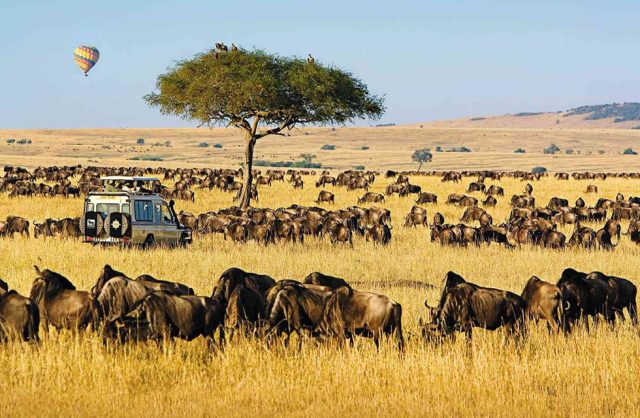Planning the ideal Kenya safari requires thoughtful consideration of various factors to ensure a memorable and enriching experience. The duration of your Kenya safari is a crucial aspect that can significantly impact your overall enjoyment and the depth of your wildlife encounters. While there isn’t a one-size-fits-all answer to how long you should plan for a Kenya safari, several factors should influence your decision. In this comprehensive guide, we’ll explore these factors and provide insights to help you determine the optimal duration for your safari adventure.
Safari Goals and Interests
Begin by clarifying your safari objectives and interests. Are you primarily interested in seeing specific wildlife species, witnessing the Great Migration, or experiencing diverse ecosystems? Your goals will influence the duration of your safari.
If you have specific wildlife sightings or experiences in mind, such as observing the Big Five or witnessing wildebeest crossings, plan for a longer safari to increase your chances of fulfilling these objectives.
Diversity of Wildlife and Ecosystems
Kenya is renowned for its remarkable biodiversity, encompassing diverse ecosystems ranging from savannas and forests to mountains and coastal regions. The country boasts an array of iconic wildlife species, including the Big Five (lion, elephant, buffalo, leopard, and rhinoceros), as well as numerous bird species and other mammals. To fully appreciate this richness and witness a wide variety of wildlife behaviours, a longer safari duration is advisable.
Geographic Spread of National Parks and Reserves
Kenya is home to numerous national parks and reserves scattered across the country. Each of these areas offers unique landscapes and wildlife populations. Popular destinations include the Maasai Mara, Amboseli National Park, Tsavo National Park, Samburu National Reserve, and Lake Nakuru National Park, among others. Exploring multiple parks requires sufficient time for travel between destinations and thorough exploration within each area.
Seasonal Considerations
The timing of your safari can influence the duration of your trip. Kenya experiences distinct dry and rainy seasons, each offering unique wildlife-viewing opportunities. The dry season, typically from June to October, is considered the best time for safaris due to the sparse vegetation, making it easier to spot wildlife around water sources. Conversely, the rainy season, from March to May, can be challenging for game viewing due to thick vegetation and muddy roads. Depending on the season you choose, you may need to allocate additional time to compensate for potential obstacles.
Safari Activities and Experiences
Beyond traditional game drives, Kenya offers a plethora of safari activities to enhance your experience. These may include guided nature walks, hot air balloon safaris, cultural interactions with local communities, bird watching expeditions, and photographic safaris. The duration of your safari should allow ample time to partake in these activities without feeling rushed.
Conservation and Sustainability
Responsible tourism practices advocate for sustainable safari experiences that minimize environmental impact and support local communities. Longer safari duration enable travelers to engage more deeply with conservation efforts, such as visiting wildlife rehabilitation centers, participating in community-based initiatives, and learning about the challenges facing Kenya’s ecosystems. By prolonging your stay, you can contribute meaningfully to conservation efforts while gaining a deeper understanding of the region’s ecological significance.
Leisure vs. Intensive Safari Experience
Consider your preferred pace of travel and level of immersion in the safari experience. A shorter safari may suit travelers seeking a brief introduction to Kenya’s wildlife, while a longer safari allows for a more leisurely exploration.
If you prefer a relaxed pace with downtime for leisure activities or cultural interactions, opt for a longer safari duration to avoid feeling rushed.
Budgetary Considerations
Budget constraints may influence the duration of your Kenya safari. While longer safaris typically entail higher costs for accommodations, transportation, park fees, and other expenses, there are opportunities to customize your itinerary to suit your budget. Consider alternative lodging options such as tented camps or eco-lodges, opt for group tours or package deals, and plan your safari during the shoulder seasons for potential cost savings.
Personal Constraints and Time Availability
Assess your personal constraints, including available vacation time, work commitments, and other travel obligations. Your schedule may dictate the duration of your safari. While longer safaris offer more comprehensive experiences, shorter safaris can still provide rewarding wildlife encounters within a limited time frame.
In conclusion, the ideal duration for a Kenya safari varies depending on above factors. While there is no definitive answer, a safari duration of at least seven to ten days is recommended to fully immerse yourself in the natural wonders of Kenya and maximize your wildlife encounters. Ultimately, the key is to plan thoughtfully, seeking a balance between adventure, relaxation, and cultural enrichment to create lasting memories of your safari expedition in the heart of Africa.






